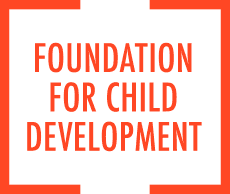https://www.fcd-us.org/providing-tools-towards-quality-the-status-of-p-3-teacher-preparation-programs-in-new-jersey/
Providing Tools Towards Quality: The Status of P-3 Teacher Preparation Programs in New Jersey, assesses whether PreK-3rd teacher preparation programs are preparing prospective teachers to teach the continuum from Prekindergarten to Grade Three, reviews how new PreK-3rd programs are aligned with other certification programs in universities, and examines how the overlap of the PreK-3rd and K-5 certificates has impacted other university programs.
The development of PreK-3rd certification programs at New Jersey’s universities in a short period of time demonstrates the state’s commitment to providing its young students with highly qualified teachers.
Despite this commitment, ACNJ finds evidence that the PreK-3rd certificate suffers from an identity crisis that plagues its legitimacy. ACNJ believes that it is crucial that schools of education recognize the PreK-3rd certificate as a valuable asset for teachers to provide a rich, meaningful and developmentally informed education for young children between three and eight years of age.
In the 2000 Abbott v. Burke decision, the New Jersey Supreme Court acknowledged the critical role that welleducated preschool teachers play in the lives of young children. The Court stated that because teacher certification is unquestionably an important component of any preschool education program, preschool teachers working in community-based programs in the poorest school districts that lacked academic credentials would be given four years to obtain certification. New teachers were required to be college graduates and obtain a Preschool -3rd grade (P-3) certification.
Implementing the Court’s mandate was no easy feat since at the time of the decision a P-3 certificate did not exist in New Jersey. The only certification option that prospective preschool teachers had was to attain a Nursery through Grade 8 (N-8) credential, thus allowing anyone having this certification to teach in classrooms ranging from preschool through middle school.
Within months of the Court decision, the state’s four year institutions of higher education developed P-3 certifications so that Abbott preschool teachers could obtain specialized training in early childhood education and be able to meet the Court’s four year deadline of September 2004. Currently, 100% of Abbott preschool teachers have their degrees and appropriate endorsement.
Along with the P-3 certification, a Kindergarten-5th grade (K-5) certification was instituted in place of the N-8 certification. This compromise permits a certification overlap between kindergarten and 3rd grade.Since the 2000 Abbott decision requiring preschool teachers to be certified, research has been conducted that has focused on both the capacity and the content of teacher preparation and professional development for these teachers in New Jersey.3 However, little remains known about the following issues that also are involved with the P-3 certification:
- Because the various P-3 programs were developed to meet the Abbott preschool mandate, it is uncertain as to whether their development focused primarily on preschool preparation or whether the programs gave equal weight to prepare prospective teachers to effectively teach preschool through third grade.
- Whether the current P-3 coursework is addressing continuity between the grades, the developmental levels at each grade and the different teaching methods needed for the varied developmental stages.
- Whether P-3 certifications were developed in a way that ensured alignment with other education certifications, including the K-5 certification which overlaps with the P-3 certification.
This policy brief attempts to assess whether P-3 teacher preparation programs are preparing prospective teachers to teach the continuum of grades within the P-3 system, review how new P-3 programs are aligned with other certification programs within universities, and examine how the overlap of the P-3 and K-5 certificates has impacted other university programs.
The findings reported in this policy brief were obtained through an interview protocol developed by the authors, in consultation with experts from the higher education community. Those New Jersey universities, a total of 13, that currently have some form of P-3 program(s) participated in the study. Staff familiar with the P-3 programs at each of these universities participated in a telephone interview either by one of the authors or by completing the protocol in writing and submitting their responses. Interviewing took place from the summer of 2006 through the spring of 2007.
Recommendations
1. Eliminate the overlap between the P-3 and K-5 Certifications.
2. Promote a better understanding of the P-3 certificate both inside and outside the universities.
3. Students should be required to spend equal amounts of field placement time and intensity in both preschool and elementary classes.
4. Conduct research regarding the different teaching styles in the different certification programs.
5. When programs are being reviewed and modified, special education faculty/departments should play a collaborative role in ensuring programs incorporate important special education pedagogy into the program.
